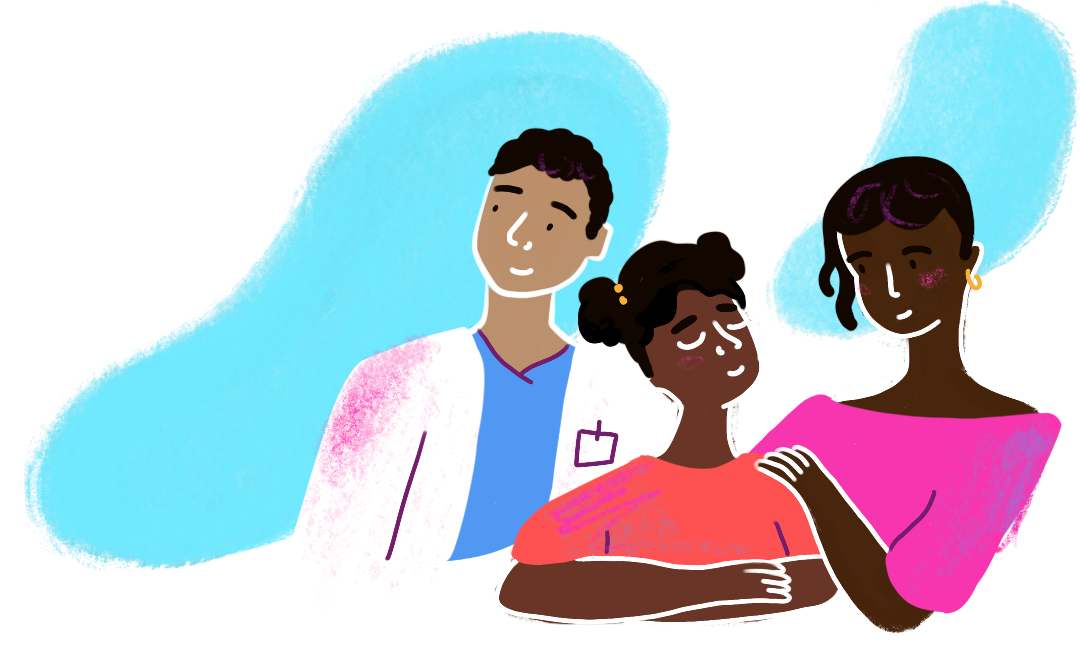How to get the most out of open notes for teenagers
Open notes help teens engage with their health, and make it easier for parents and guardians to support teens with their health care as needed.

Doctors and other medical providers write notes summarizing any clinical visit, whether in-person, telehealth, or in-patient stay. When these notes are shared with patients, they become “open notes.” Information in a note includes: symptoms and issues discussed, medical history, what your provider thinks is going on, and the care plan. The care plan outlines treatments, medications, next steps, and other ways to help a patient optimize their health.
For Adolescents
Most healthcare institutions or clinics have secure online patient portals where you can find your notes. You can register to get access to your health information, including your notes, through the portal.
The age when patients under the age of 18 can register for a portal account varies. Make sure to ask a member of your care team if and how you can register for a portal account.
It depends. Healthcare institutions and clinics have different policies about allowing access to patient portals and visit notes for people under the age of 18. Some places limit what parents can see, while others allow parents ongoing access to some notes. Ask your care team about what your parent can see.
If you’re 18 years old or older, your parents will generally no longer have access to your health information, and you’ll be the only one to have access. If you want your parents to continue to have access, you can ask your health care team how your parent can become a patient portal proxy for you.
Some information shared between patients and providers is considered private or confidential. Make sure you tell your provider when there is information you want to keep private and not share with others who may have access to your health information. Most healthcare institutions will make sure your private information is not shared without your consent.
Reading your open notes is an important part of your healthcare journey and can help you manage your health in many ways:
- Help you better understand your health issues
- Remind you of the next steps or care plans discussed at your visit
- Remind you what medications you’re taking, the dose of your medication, what tests you need to get done, and when to schedule your next appointment
- Help you understand your test results or reasons why you’re having a test done
- Help you understand how your care team is thinking about your symptoms or reasons for your symptoms (i.e. diagnosis)
- Remind you of the details of the examination that was done, including your blood pressure, weight, heart rate and the exam of your individual body parts
- Ensure your care team understands and hears your concerns and priorities by making sure the note accurately reflects and captures what you discussed with them during a visit
- Help you be actively involved in decisions made about your treatment plan and to feel more comfortable asking questions
- Help you correct any mistakes or inaccuracies in the note, including the reason for your visit, any new or ongoing symptoms you’re experiencing, your health issues, or the medications you’re taking
- Help you prepare for your next visit and communicate your health history and key items you want to discuss during the visit
When you visit the doctor share your top priorities, your concerns, and your new or evolving symptoms. This helps your care team document this information in your visit note.
Then, read your note to make sure it accurately reflects what was discussed at the visit. If you notice any mistakes or inaccuracies, reach out to your care team to have it fixed.
For Parents/Guardians
Most healthcare institutions or clinics have patient portals that provide access to your child’s health information, including the visit notes.
- Some institutions and clinics will limit parents’ access to an adolescent’s health information. This is because of state laws that restrict access to specific private or confidential adolescent information. Not all patient portals are able to separate confidential information from non-confidential information. Reach out to your care team or clinic to find out what their policies are.
- If the policies do not allow you to have access to clinic notes, encourage your child to sign up for a patient portal once they’re eligible so they can access their notes.
- The age when patients under the age of 18 can register for a portal account varies. Make sure to ask a member of your care team if and how you can register for access to their account.
- Once your child turns 18 years old, your access to your child’s health information is usually discontinued. By law, they are now adults.
Reading open notes is an important skill both for your teen and for you as a parent/guardian. It can help teens learn self-care related to their health issues as they transition to adulthood. And it can help you manage your child’s health in many ways:
- Help you and your child better understand their health issues
- Remind you and your child of the next steps or care plan discussed at the visit
- Remind you and your child about what medications they’re taking, the dose of the medication, what tests need to get done, and when to schedule the next appointment
- Help you and your child understand test results or reasons why a test needs to be done
- Help you and your child understand how your care team is thinking about your child’s symptoms or reasons for the symptoms (i.e., diagnosis)
- Remind you and your child of the details of the examination that was done, including blood pressure, weight, heart rate and the exam of individual body parts
- Ensure your child’s care team understands and hears you and your child’s concerns and priorities by making sure the note accurately reflects and captures what was discussed during a visit
- Help you and your child be actively involved in decisions made about the treatment plan and to feel more comfortable asking questions
- Help you and your child correct any mistakes or inaccuracies in the note, including the reason for a visit, any new or ongoing symptoms, health issues, or medications being taken
- Help prepare for the next visit and to communicate health history and key items to discuss during the visit
- Help as a reference tool and to improve information sharing and collaboration when visiting other providers
- After a medical appointment, review the visit note together. Highlight what is important. Ask questions. Help them think about their own health. Encourage them to develop self-care skills.
- Ask them to look at when they are supposed to see that provider again. If you haven’t made the appointment, teach them how to make it.
- If your child asks a question about a change in their medication or are unsure of a step they were supposed to take, ask if they have checked the visit note. Have them look up that note and see if they can find the information they need.
Reach out to your care team or provider to notify them of the mistake. Ask them to update the note with the correct information.


 OpenNotes is a global movement. We encourage and study open and transparent communication in health care. We work with patients, families, doctors, nurses, social workers, and other clinicians. Our work is not-for-profit, and we are supported by grants and donations. To support OpenNotes and to learn more, visit the
OpenNotes is a global movement. We encourage and study open and transparent communication in health care. We work with patients, families, doctors, nurses, social workers, and other clinicians. Our work is not-for-profit, and we are supported by grants and donations. To support OpenNotes and to learn more, visit the 
